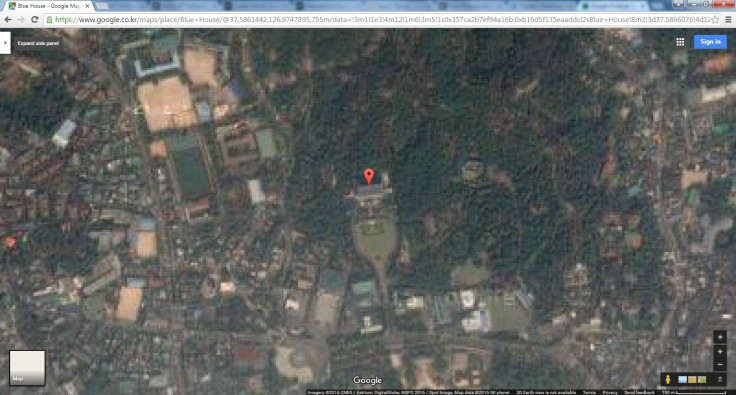Google Maps: Alphabet (GOOG) To Ask South Korea To Lift Restrictions On Mapping Services

Google is expected to take up issues of deregulation with South Korean officials at a meeting Wednesday, hoping less restrictive rules will allow it to offer the full range of its Google Maps services in the East Asian nation, according to a report in the Wall Street Journal. Currently, using Google Maps is a better experience in the traditionally isolated North Korea, compared to using it in the South.
Alphabet Inc., the parent company of Google, has been talking to South Korean officials ahead of the Wednesday meeting, to be chaired by Park Geun-hye, which will discuss deregulation and innovation. The rules governing map data and its use by private companies pertain to national security, and Google’s competitors in the mapping industry in South Korea use government-supplied maps that blur or camouflage sensitive installations, such as the president’s residence.
“The main point is national security,” Kim Tong-il, an official at South Korea’s Ministry of Land, Infrastructure and Transport, which oversees mapping policy, told the Journal.
This has led to a range of strange situations. For instance, you can get driving directions between cities in the usually more-repressive North Korea, but not in the South. China, which has blocked Google’s main search services, hasn’t blocked features of Google Maps since 2008. And in a reflection of the futility of the South Korean government’s attempts to control sensitive data, all of its land, with its installations — sensitive or otherwise — are visible on Google Maps when accessed from anywhere else in the world.
The South Korean government blocks export of map data to data centers outside the country, which Google must do to offer its usual suite of services in the country. Google Maps services are designed in a way that relies on multiple data centers all around the world.
Kwon Bom-jun, the Google software engineer who is leading the push for deregulation, told the Journal: “No matter how many servers we have in [South] Korea, we can’t have all of our Google Maps services handled there.”
© Copyright IBTimes 2024. All rights reserved.



















